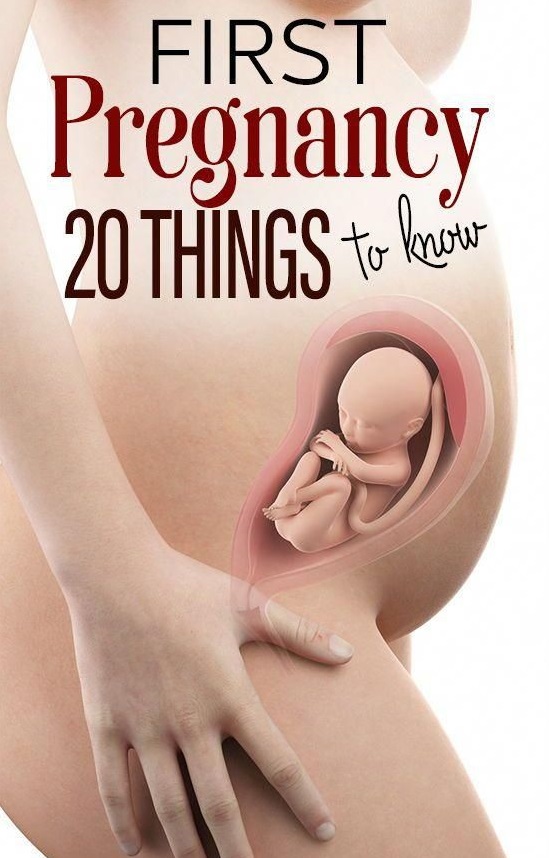
Liya had never been more joyful than when she heard her ten-week-old child’s first heartbeat. The wellbeing expert, who checked her through the fetal screen, guaranteed her that the infant is solid.
What’s more, the following couple of months of Liya’s life were simply loaded up with making arrangements for the infant, sustaining herself and the infant in the belly. It was the loveliest time of a pregnant mother’s life. There might be a couple of obstacles as well. Be that as it may, aren’t there obstacles all over?
MomJunction causes you explore through the miracles and encounters which lie ahead in pregnancy. There is a ton you have to know, particularly on the off chance that you are first time pregnant. Obviously, you have to talk about a significant number things with your specialist too. In this way, prepare for the great voyage ahead.
1. Signs that you are pregnant:
Once you miss your period, you may have some symptoms such as nausea, mild back pain, mood swings, tender or swollen breasts, and cravings for some particular food. Many times, false symptoms lead to confusion. Understand that there are some solid signs which indicate that you are pregnant. One way to confirm your pregnancy is to conduct a home-based urine test using the kits available in the market. You could also get a pregnancy test done by a doctor.
Being sure that you are pregnant is vital. If the home pregnancy tests show vague results, you should go to the ob-gyn to confirm your pregnancy.
2. Visits to doctor for prenatal care are important:
Many couples visit a doctor even before planning a baby just to make sure that their first time pregnancy is healthy and devoid of complications. Once you confirm your pregnancy, it is important to visit your doctor regularly. Choose the best gynecologist and never skip monthly check-ups. This helps in gauging both the mother’s and the baby’s health. Moreover, it is also necessary to curb any developmental disorders at an earlier stage itself3. Understanding the family medical history:
This is one of the most crucial things to remember during pregnancy. Once you conceive, it is a good idea to discuss your mother’s, grandmother’s, or aunts’ pregnancies. It helps you learn about any genetic disorders or birth abnormalities in the family line. Information like this will prepare you for any potential problems and take preventive actions if required
With every antenatal appointment, your doctor will inform you of the vaccination shots you will have to take next. Be it a regular tetanus or flu shot, take the shots without fail. Vaccinations will prevent you from falling sick. Remember, some illnesses in newly pregnant mothers can seriously impair the physical and mental health of the fetus. So, stay safe, stay sure.
There is a myth that vaccinating pregnant mothers can cause a health risk to the baby. There is, however, no evidence to prove this. Live attenuated virus and live bacterial vaccines are not suggested during pregnancy. The benefits of vaccinating pregnant women outride the potential risk
5. Finding your gestational age:
Pregnancy is divided into three stages, each consisting of three months, called trimesters. With each passing stage, physiological changes occur in your body in the form of hormonal changes, blood pressure, breathing, and metabolism. One should monitor such changes from the beginning of pregnancy to understand the other stages and your progress through them. It is also necessary to know your delivery due date, which is mostly determined from the date of your last menstrual cycle. A normal delivery can happen anywhere between 37 and 40 weeks
6. Bleeding can occur during pregnancy:
Typically the first sign of pregnancy is considered to be missed periods. However, some women bleed in the initial stages of pregnancy, creating confusion if it menstrual bleeding.
This kind of bleeding occurs when the egg travels down the fallopian tube and into the uterus, where it implants into the uterine lining (implantation bleeding or spotting). The best way to recognize it is from its color. It is often in brown or pink color in contrast to the usual red color of the menstrual blood. Though it is not a disturbing factor, it is good to consult a doctor.
7. How much weight gain is normal?
Most women are worried about weight gain during their pregnancy for the first time and are eager to lose it at the earliest post-pregnancy. Your weight gain depends on your BMI (body mass index) before pregnancy. If you are overweight when you conceive, then you are advised to put on fewer calories than someone who is of normal weight. The basic idea is that the fetus should get necessary nutrients to grow and have a healthy development. So eating the right meal and understanding the needs of the baby are a priority
8. What to eat and what not to eat:
Along with the regular dose of vitamin and health supplements, you should have a nutritious, wholesome, and balanced diet. Doctors, usually, provide a proper diet chart as per your unique needs. Take small and frequent meals.
Also, you need to stay away from alcohol and caffeine products as they can increase the chances of premature delivery, congenital disabilities, and underweight in babies
Your everyday exercise routine ensures the smooth functioning of your body. Remember, childbirth is a laborious process that demands a lot of energy. Only a healthy body can withstand the various stages of labor. Exercises also help in alleviating the usual discomforts one experiences in pregnancy. They strengthen your muscles to endure pregnancy pains. Results show, the right workout routine of a pregnant mom significantly supports the development of your baby’s entire system
10. There can be discomforts during pregnancy:
Being pregnant is not easy. There will be discomforts throughout the period. Activities such as standing or sitting for long durations that you could indulge in earlier, would either be forbidden now or you find them too difficult to do. Issues such as constipation and vomiting could drain your energy. Eating healthy and getting the required amount of rest, can help you reduce the discomforts
11. Travel during pregnancy:
Traveling is fine in the initial stages, but it could be risky as your due date approaches. Several airlines do not allow women travelers who are more than 36 weeks pregnant. If your travel is unavoidable, consult your doctor and take necessary precautions. There could be times when a doctor’s certificate is a prerequisite for travel
Here are some early pregnancy facts in which your doctor may advise you to avoid traveling:
- History of pre-term labor or miscarriage
- Multiple pregnancies (twins, triplets, or more)
- High blood pressure
- Placental abnormalities
- Gestational diabetes
- Incompetent cervix
- History of bleeding during pregnancy
- History of preeclampsia or ectopic pregnancy
If none of these complications exist, your doctor might allow you to travel. Most doctors permit travel in the second trimester but may ask you to avoid it during the first and third trimesters.
12. Have the right attitude:
Always be positive. The right approach will make you strong enough to face the challenges at every stage of pregnancy. Psychologists reinforce that sound mental decorum of the mother has a high impact on the fetus. Prepare ahead, as a well-informed mother can cope with the early laborious days after delivery.
13. Keep your career worries aside:
You might be worried about the status of your career once your baby arrives. Don’t try to push your existing career into the new role as a mother. A career that meshes better with motherhood is an ideal pick. You can rebuild your career once your kids grow older and are independent.
14. Allocate time for everything:
A study published in the Journal Of Labor Economics mentions that pregnant women who worked until their eighth month had babies half a pound lighter than those who stopped working earlier. Pregnancy could be a huge stress on your body, and therefore, you cannot stress yourself more with a job. If you cannot afford to take a break from work, take frequent breaks in between.
15. Choose your place of birthing:
You should plan the place – hospital, nursing home, etc. – where you would like to give birth. It is important to choose a place that is best for you and suits the needs of your family. The hospital should be determined by the expertise of your doctors, their credibility, hygiene, and other factors such as the distance from home and the surroundings of the birthing place. Selecting a place well in advance and making visits there should make you comfortable for your D-day
16. What is labor pain?
When your due date comes closer, you will go into labor pain. It is necessary to consult the doctor and understand what ‘going to labor’ means. It is another must thing to know when pregnant and identifying it will make it easy for you to handle your labor with no difficulty. One quick sign of labor is frequent painful contractions which increase in intensity with time. Many times, walking is recommended during early labor because it makes women feel more comfortable
17. Fearing childbirth could delay the labor:
Women who fear childbirth will spend about one and a half hour longer than women who do not fear about giving birth. Fear and anxiety would increase the blood concentrations of the hormones known as catecholamines, which will weaken the ability of the uterus to contract . Poor communication between you and your doctor may also prolong the labor. It is advisable to go for prenatal breathing classes.
18. Do baby shopping beforehand:
Another thing you need to know about pregnancy is to avoid last minute rush, keep all things required post delivery, ready. A few clothes, baby mats, blankets, warm clothes (depending upon the season), and feeding equipment should be bought in advance. Moreover, you enjoy such shopping, and it enhances your connect with the baby.
19. Learning and understanding childcare and parenting:
After delivery, a sudden responsibility of childcare and parenting can be difficult for many people. Therefore, talk to your doctors, friends, relatives, or read various books to equip yourself with some knowledge on pregnancy and childcare.
20. Pregnancy can boost your memory:
Canadian researchers from the University of Western Ontario say that pregnancy supercharges the brain’s gray matter rather than turning it into mush, to face the challenges of motherhood. A study found pregnant moms do well on memory tests than other women who don’t have babies.
source: 20 Important Things To Know When You Are Pregnant For The First Time


Leave a Reply